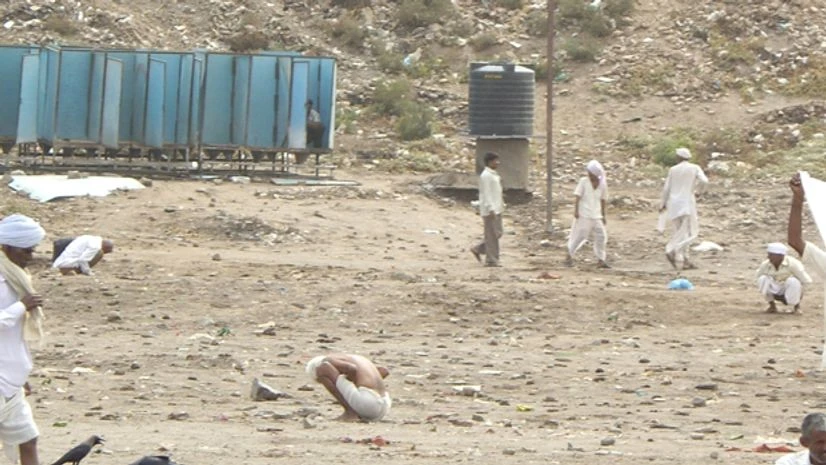Rural Kerala is all set to be declared as 'Open Defecation Free' next month, with the construction of 90 per cent of its total target of 1,75,084 toilets despite land constraints, logistic challenges and high density of population.
CPI(M)-led LDF government has invited Prime Minister Narendra Modi to declare the state as 'Open Defecation Free' (ODF) at a function, to be held here on November 1.
'Suchitwa Mission', the state nodal agency for sanitation, has met 90 per cent of its total target of constructing 1,75,084 toilets despite constraints. Mission Executive Director K Vasuki said construction of 1,54,764 lakh toilets in 843 village panchayats has been completed under the ODF initiative and remaining work is progressing fast.
The core objective of the initiative is to help people have more access to toilets and better sanitation than constructing the facility in large numbers, she said. "We have completed 90 per cent work of our total target of 1,75,084 toilets in 941 village panchayats. Six districts — Kasaragod, Kannur, Kozhikode, Thrissur, Kottayam and Pathanamthitta, have already been declared as ODF," Vasuki told PTI in an interview.
According to her, the Mission's aim is to declare the rural sector of Kerala ODF in the present phase and the urban region by next year, work for which has already commenced. "Different geographical terrain, high density of population and the attitude of people are the most challenging barriers before us to accomplish the task. But, we can overcome the difficulties to a great extent with comprehensive action plan and region-specific construction methods," she said. Under the initiative, toilets have been constructed in remote tribal hamlets located in hilly terrains to water-logged regions, coastal hamlets and densely populated areas.
"Our team had to trek a whole day to reach Edamalakkudy, a emote high range tribal village, for identifying beneficiaries and location and for construction work."
More From This Section
"The work in Attappady, another tribal hamlet, also posed challenges because of the remoteness of the place. We had to adopt alternative designs like pre-fabric septic tanks in high water table areas," Vasuki said, elaborating the challenges faced by the Mission.
Around 39,000 individual house-hold latrines would be readied in critical and geographically challenging areas with the completion of the project.
Even vulnerable communities, living in far-off places like Attappady and Kadamakuty, were expected to benefit from this, Vasuki said.
The official, however, said constructing individual toilets in all houses was not a practical solution to check open defecation in a state like Kerala.
"Individual latrines were not possible in many densely populated areas, where houses are built close and there is no space for constructing toilets. To address land constraint issues, we built community toilets in such places," she said.
"The objective of ODF initiative is to give people more access to toilets than building latrines in maximum numbers," she said.
Asked about the attitude of people towards using toilets, Vasuki said a majority of people, especially women, children and the youth, are open and supportive to the initiative.
In tribal areas, more women and children now prefer toilets for defecation. They see it as a privacy and safety issue these days, she said.
"A lot of changes have happened in the mindset of coastal people also in this regard especially after the recent gruesome death of an elder women, who was mauled by stray dogs when she went to the beach to answer nature's call," she said.
"Persuading elder people, above the age of 65, to use toilets is still a challenging task in such areas," she said.
Suchitwa Mission has a comprehensive post-ODF plan to carry forward the project and a meeting in this regard would be held with various service organisations on October 13 here, she said.
"We have a post-ODF plan for follow-up. For that, the Mission will form follow-up committees at the ward level with students and social workers as members. In coastal areas, we have sought the support of the church authorities as they have better influence and reach among the local dwellers," she said.
A total of Rs 269 core is the total outlay for the project. Besides government allocation, funds have also been raised through Corporate Social Responsibility schemes, the official said adding both state and union governments were extendingsupport for the initiative.
Suchitwa Mission is constituted under local self-government with the vision of creating a waste-free, unpolluted Kerala with an emphasis on developing public hygiene and cleanliness.

)
